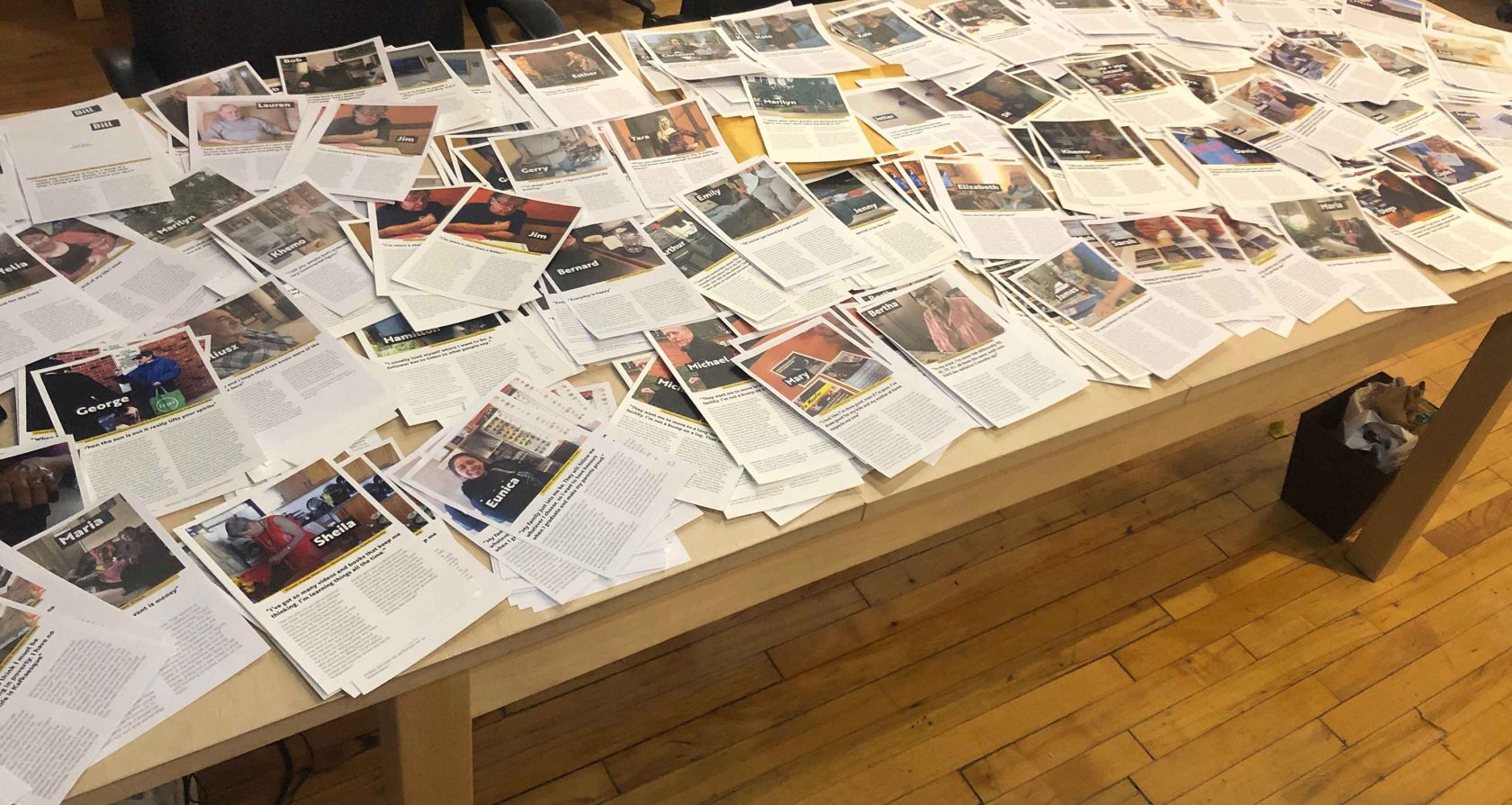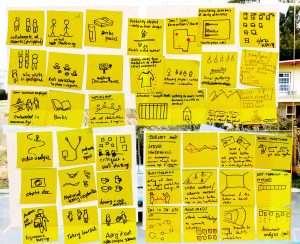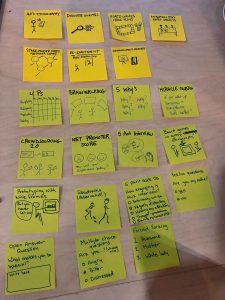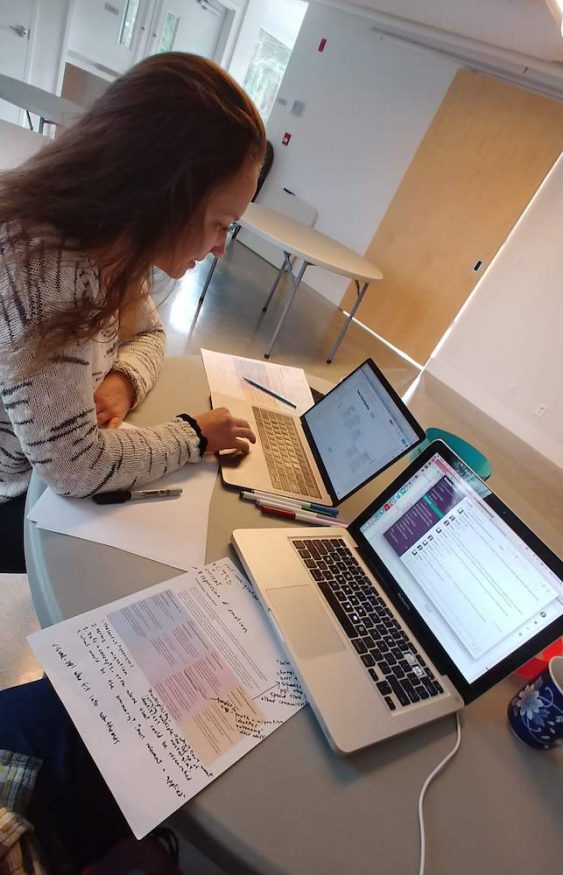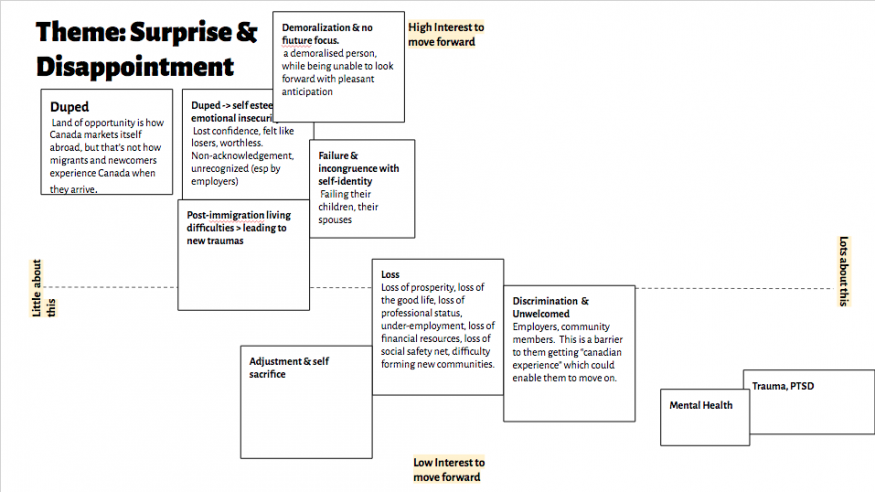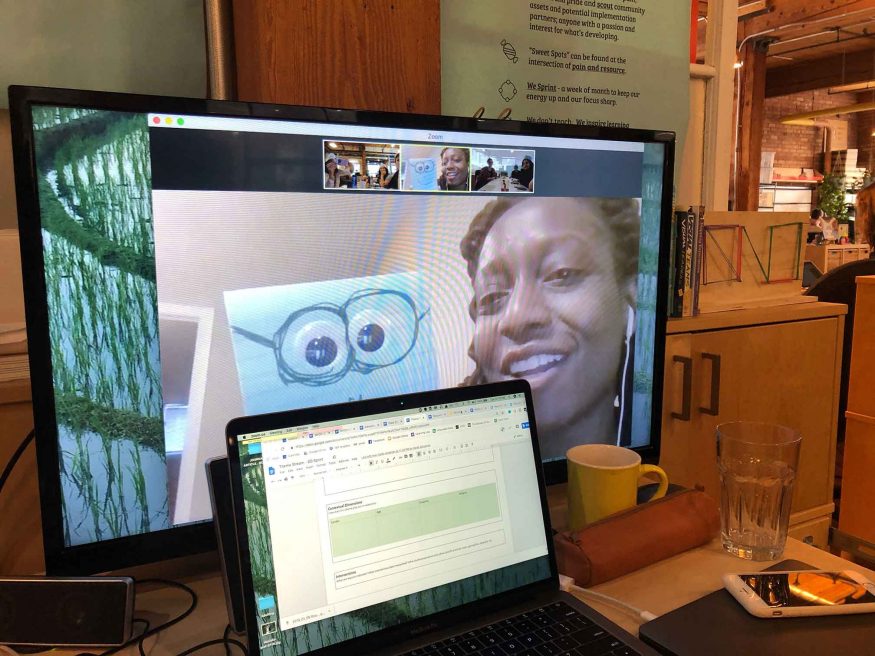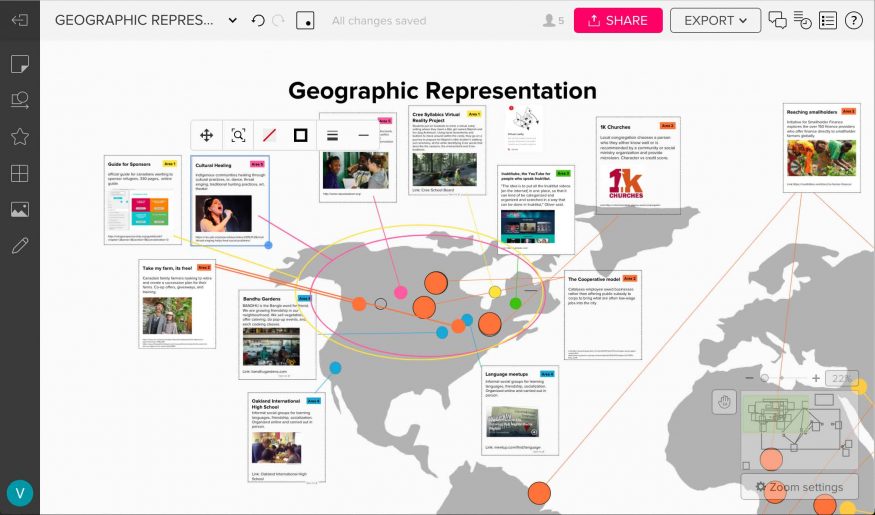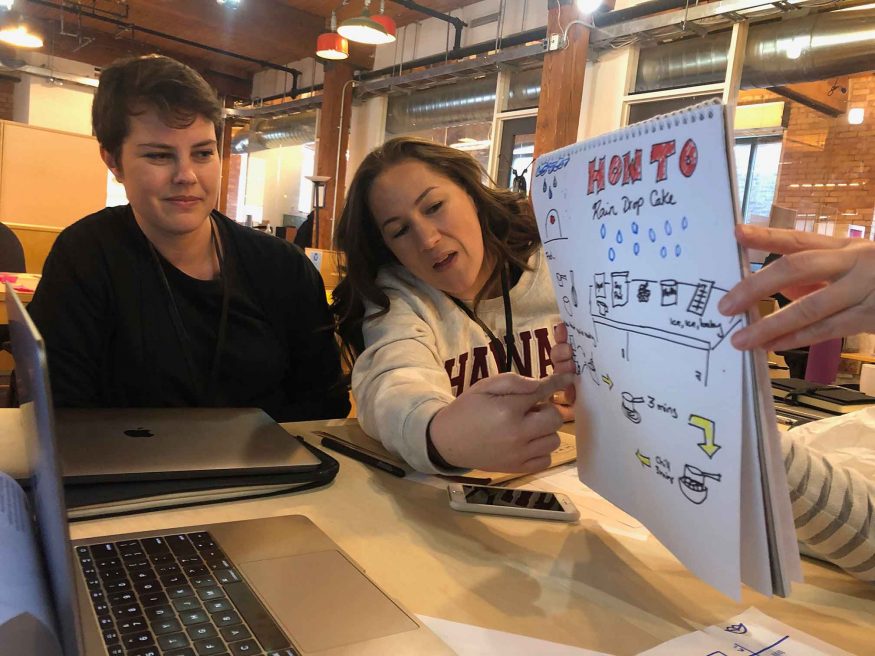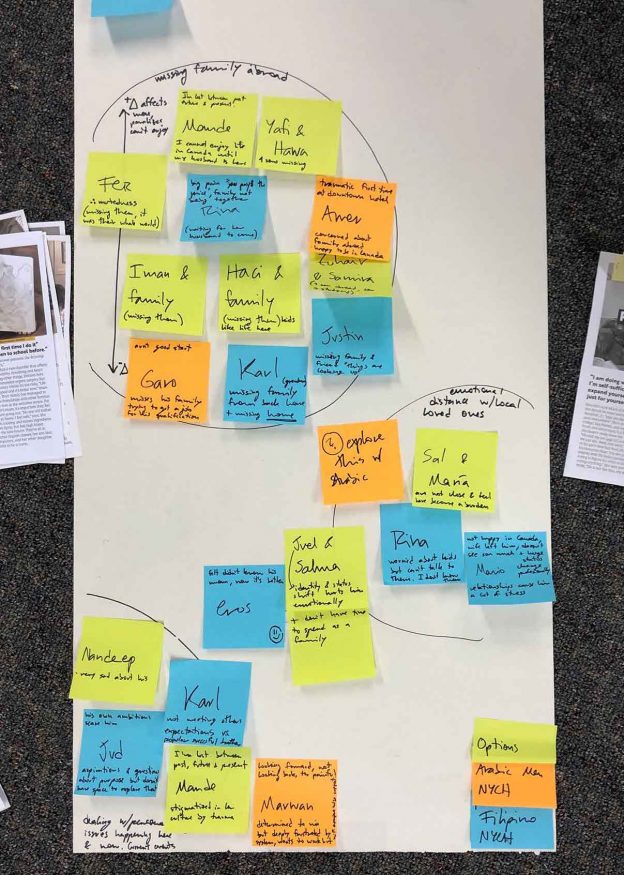Categories
Over three days in January, InWithForward, Options Community Services and North York Community House embarked on a joint research sprint – in visual terms:
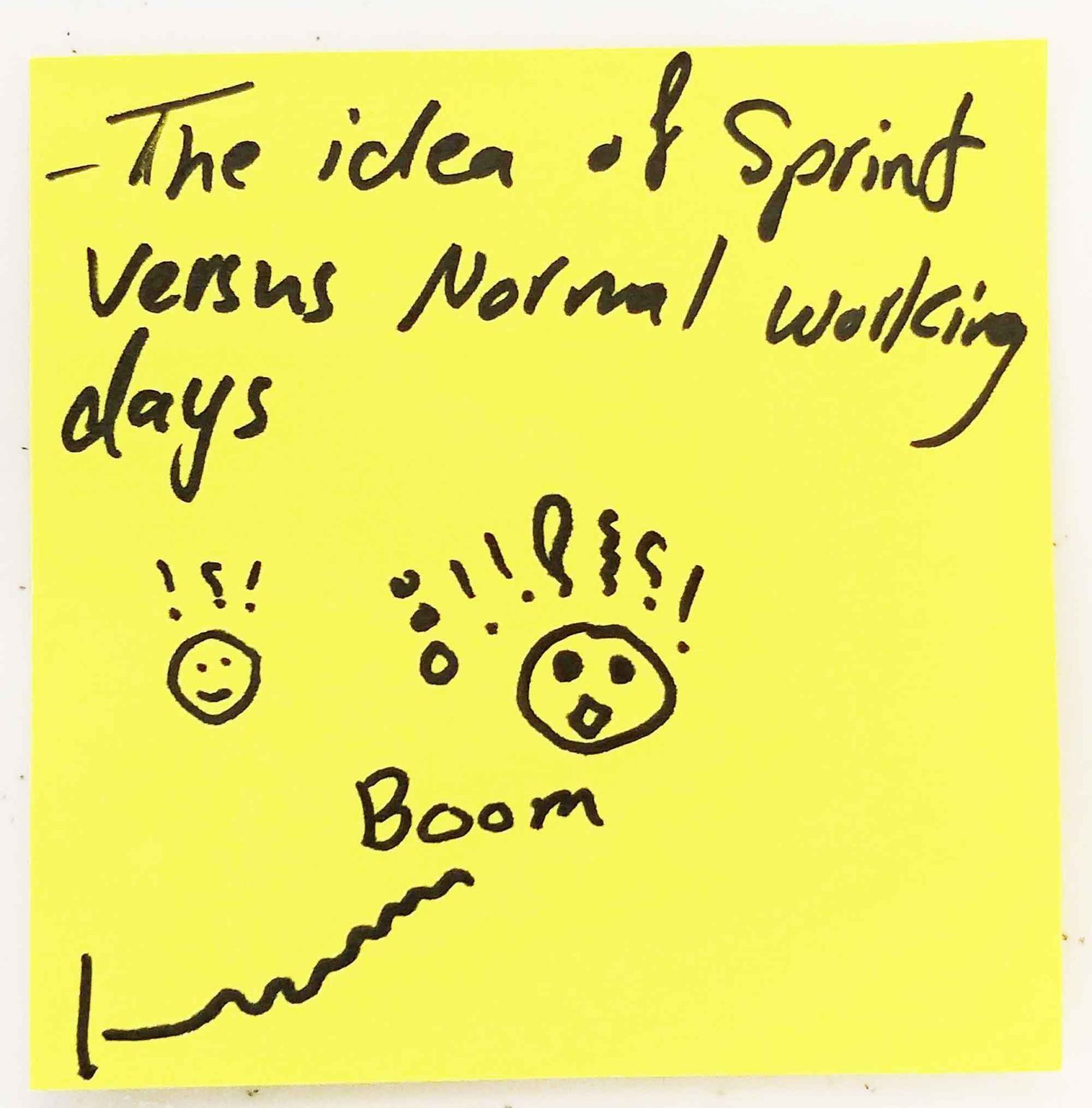
In written terms, a research sprint is a 3-5 day concentrated burst of co-working with the explicit goal of rapid product development.
Sound intense? Try adding 4,300 kilometers and a 3-hour time difference between team members during that process.
Scene-Setting the Sprint
What was this sprint all about?
The point was to sit down as a team and make sense of all the fascinating information we gained in our respective Quick Dive phases in the Fall (that’s where we did original ethnographic research with newcomers and collected about 58 stories). We had completed our initial analysis in December and were primed to make some big decisions about the direction we would move towards with the research. Each day, we received briefs with details of what our mission was, and each day had distinct goals:
Tuesday – Scope Day
On Tuesday, we dove into exploring 3 streams:
- Segmentation Stream that compiled all profile stories across projects and aggregated data;
- Theme Stream that did literature search for the top 5 themes we had previously identified as pertinent to our segments;
- Opportunity Area Stream that did an initial web search to find out what’s happening in other fields that work towards addressing the same themes we identified.
Wednesday – Narrow & Make Day
We came together Wednesday to visualize the overlaps between segmentations, themes, and opportunities, and to narrow our scope. Each stream presented visual representations of what they had found to the rest of us. Starting with our 5 research themes/segmentations/opportunities from the day before, we chose to move forward with 2 based on what we found a gap for: Emotional Ambivalence and Surprise & Disappointment. We started to dump our questions and curiosities around these themes on paper.
Thursday – Make More and Plan Day
On our final day, we grouped and narrowed the research questions, got creative about methods/tools to try, and made outputs to show what these might look like. We also made decisions about who will be responsible for what area in the coming month.
Half of us will be on the ground, focusing on:
-
- Ethnography & co-design – (going back to our users and meeting new people to help us) and
- Local service shadowing – (seeing what services in the Lower Mainland – and Pacific Northwest, are doing to address our chosen themes).
The other half of us will be mainly at our desks, looking at:
-
- International case studies (exploring what’s out there worldwide, in any field, that touches on addressing our chosen themes) and
- Literature and academics (diving into the literature and interviewing experts on these subjects).
Now that you’re oriented, here’s a quantitative look at how we got qualitatively fit.
The sprint involved 12 team members
Across three locations: Toronto, Surrey, and York Quarantine.
Shayna – Options/IWF Designer
Valentina – IWF Lead Designer
Melanie – IWF Designer
Shokhan – Options Impact Apprentice
Alysha – Options Impact Producer
Daniela – IWF Lead Ethnographer
Jess – IWF Designer
Natalie – IWF Lead Coach
Michelle – IWF Design Fellow
Laura – IWF Design Fellow
Sarah – IWF Partner
Rutendo – NYCH Impact Producer
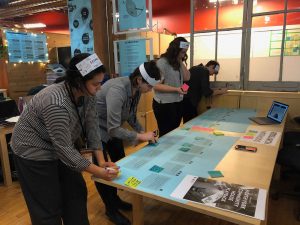
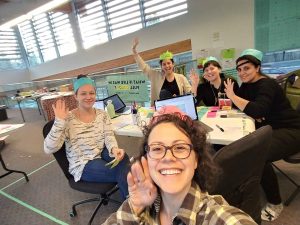
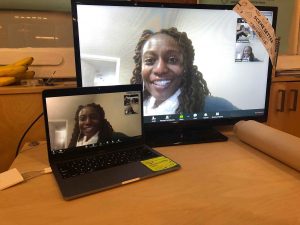
The sprint involved 6 roles
- Sprint Master/Mistress – The coordinators, the timekeepers, the agenda preppers – our leaders.
- Documenter – the digital record-keepers, interviewers, behind-the-camera folks.
- Producter – the one with the made-up name, the creators of tangible products by the end of the sprint.
- Scene Setter – The planners of physical space, materials, and foremost, snacks.
- Sprint Doula – the emotional check-in coaches, the process learning cataloguers.
- Compass – the final sayer.
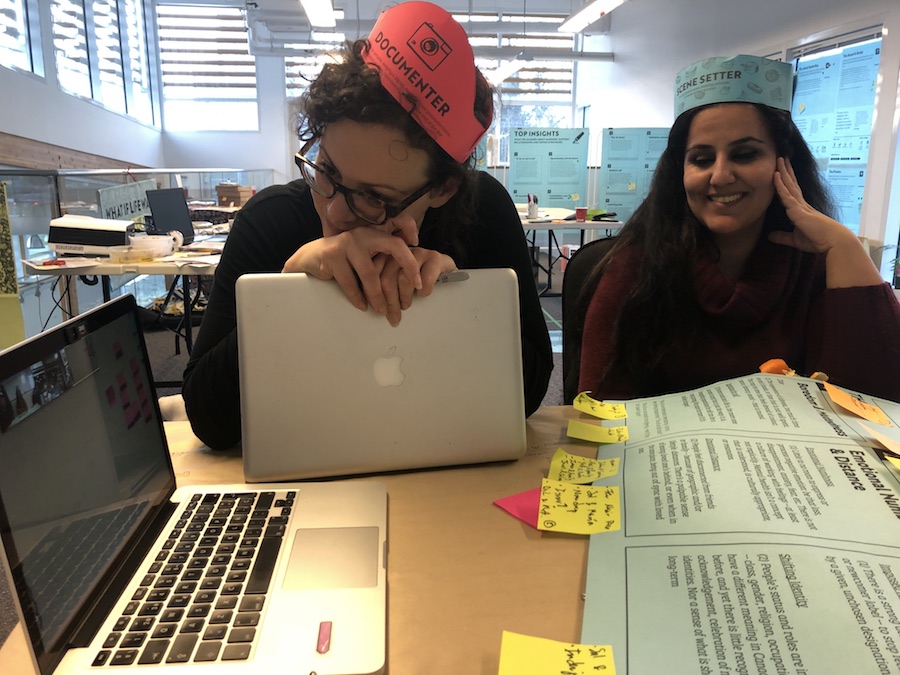
The sprint used 5 different platforms
- Zoom – Quick video-chats that will be augmented with external microphones next time.
- Slack – the best platform for rapid communication and coordination
- Dropbox – storage space, indeed!
- Google Drive – Slides and Docs keep us visually connected.
- Mural – the most recent addition to the IWF team, Michelle, bringing her know-how and this useful platform to boot.
The sprint used 400+ post-it notes
The tip of the sticky-note iceberg.
We divided into 3 streams
As mentioned above, our Segmentation Stream, Theme Stream, and Opportunity Area Stream divided and conquered to see what’s out there.
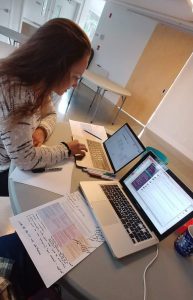
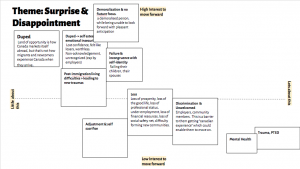
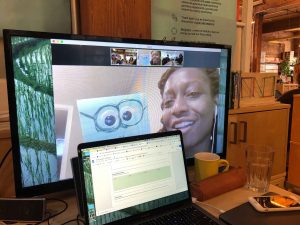
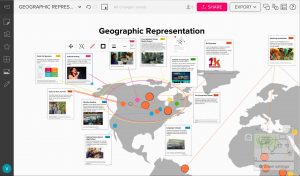
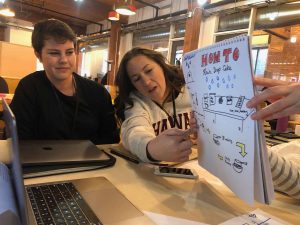
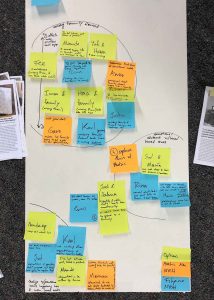
Stream teams weren’t divided by location, but rather by our individual strengths. This meant video chatting across time and space to co-search and brainstorm.
The sprint used 2 Energizing Arabic Dance Lessons
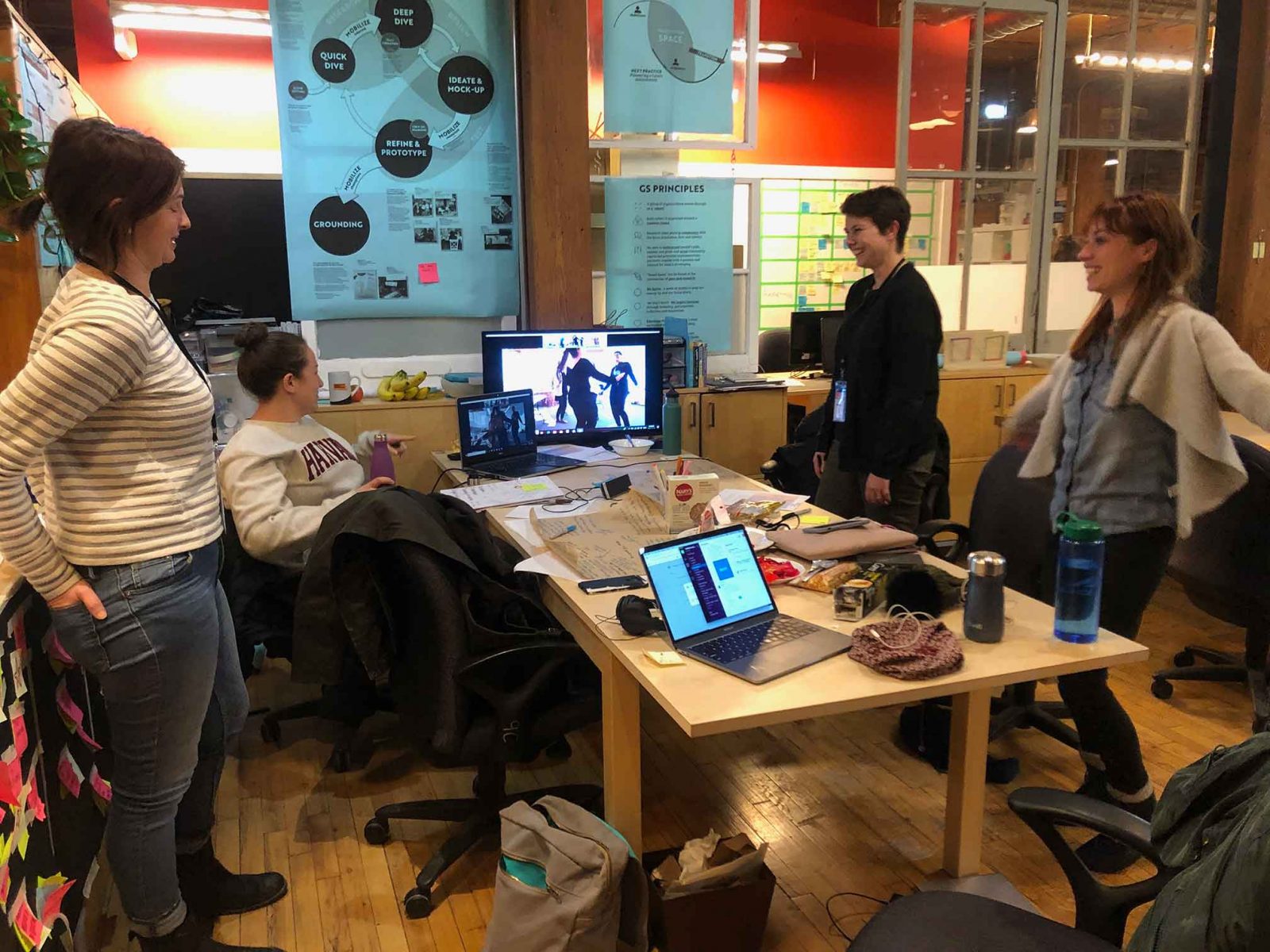
The Sprint Produced 1 Output Document
I said rapid product development, didn’t I!? Download our document below to see how this process can result in concrete ideas – a solid jumping-off point for the journey ahead.
